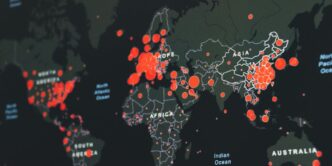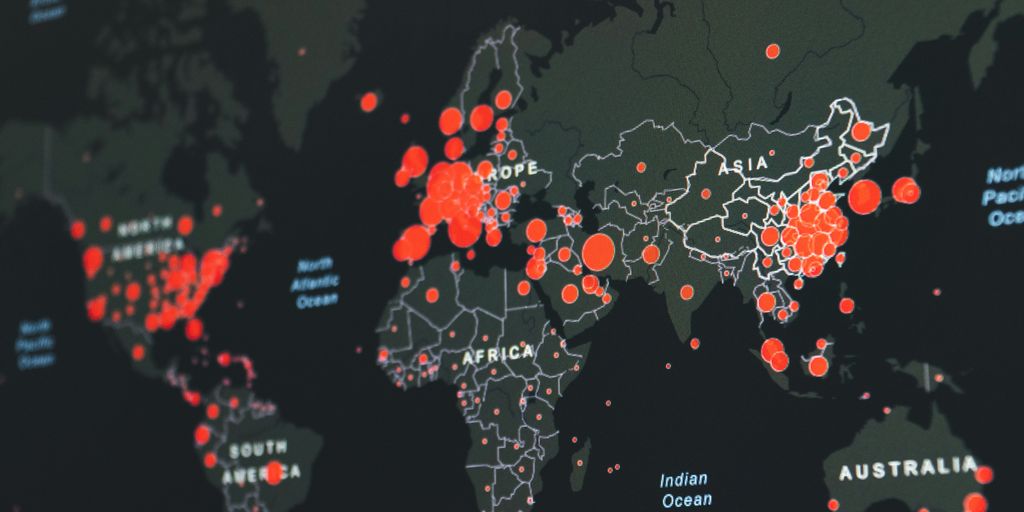It feels like every other day, there’s a new rule about how companies can handle our personal information. In 2025, keeping up with these global data privacy laws is going to be a big deal for just about everyone, especially businesses. This article will help you get a handle on what’s coming, from new laws to the challenges of sending data across borders, and how to make sure you’re doing things right. We’ll talk about the big players like GDPR and CCPA, plus what’s popping up in other parts of the world. It’s all about understanding these rules so businesses can stay out of trouble and build trust with their customers.
Key Takeaways
- The world of data privacy is always changing, with more and more countries making their own global data privacy laws. This means businesses need to keep an eye on what’s new and update how they handle data all the time.
- Laws like the EU’s GDPR and California’s CCPA are setting the standard for how data should be protected. Other countries, like Brazil and India, are following suit, creating a complex web of rules.
- Moving data from one country to another can be tricky because different places have different rules. This makes it tough for companies that operate everywhere to make sure they’re always compliant.
- Businesses that get data privacy right can earn customer trust and avoid big fines. It’s not just about following rules; it’s about showing customers their information is safe.
- To stay on top of things, companies should regularly check their data practices, set up clear rules for how data is handled, and maybe even have someone whose job is just to focus on data protection.
The Global Data Privacy Landscape in 2025
Understanding Core Principles of Global Data Privacy Laws
Think of global data privacy laws like the rules of the road, but for your personal information. They’re designed to keep your data safe as it travels around the world. These laws share some basic ideas, like being open about how data is used, getting your permission, only using data for specific reasons, keeping data to a minimum, and protecting it from harm. It’s like making sure everyone wears a seatbelt and follows the speed limit on the digital highway.
Proliferation of Data Protection Legislation Worldwide
It feels like every other week, another country is passing a data protection law. We’re way past a handful now – over 130 countries have some kind of law on the books, and that number keeps growing. This explosion of laws creates a bit of a headache for businesses that operate in multiple countries. Imagine trying to follow 130 different sets of instructions! It’s a challenge, but also an opportunity to build better, more trustworthy systems. For example, the 5G security market is growing rapidly as companies try to keep up with all the new regulations.
Navigating Diverse Regulatory Requirements
Okay, so you know there are a ton of laws out there. But here’s the kicker: they’re all different! What’s okay in one country might be a big no-no in another. A single website might have to follow dozens of different privacy rules, depending on where its visitors are located. It’s not just about where the company is based. This means businesses need to be extra careful and really understand the global data privacy laws to avoid getting into trouble. It’s a complex puzzle, but with the right approach, it’s solvable.
Key Global Data Privacy Regulations in 2025
The world of data privacy is a complicated one, especially if you’re doing business across borders. It’s not enough to just follow the rules in your own country; you’ve got to keep up with what everyone else is doing too. Let’s take a look at some of the big players in the data privacy game right now.
The European Union’s GDPR: A Benchmark for Global Data Privacy Laws
GDPR is still a big deal. It set the standard for a lot of other laws around the world. It gives people a lot of control over their data, and companies have to be really careful about how they collect, use, and store personal information. If you’re dealing with EU citizens, you need to be GDPR compliant, no matter where your company is located. It’s not just about avoiding fines; it’s about showing your customers that you respect their privacy. Here’s a quick rundown of key GDPR principles:
- Right to access: Individuals can ask what data you have on them.
- Right to be forgotten: Individuals can request their data be deleted.
- Data minimization: Only collect what you absolutely need.
The California Consumer Privacy Act (CCPA) and US State Laws
CCPA was a game-changer in the US. It gave Californians some important rights, like the right to know what data companies are collecting about them and the right to tell companies not to sell their data. Other states have followed suit, creating a patchwork of different privacy laws across the country. Keeping up with all these different state laws can be a real headache for businesses. It’s a good idea to look into US privacy laws to make sure you’re covered.
Emerging Global Data Privacy Laws: Brazil’s LGPD and India’s Bill
It’s not just Europe and the US that you need to worry about. Brazil’s LGPD is similar to GDPR, and India is working on its own data protection law. These laws are important because they show that more and more countries are taking data privacy seriously. If you’re doing business in these regions, you need to understand these laws and make sure you’re compliant. Ignoring them could lead to big problems down the road. Here’s a quick comparison:
| Law | Key Features |
|---|---|
| LGPD | Similar to GDPR, strong data protection rights |
| India’s Bill | Focus on data localization and consent |
Complexities in Global Data Privacy Compliance

Diverse Regulatory Requirements Across Jurisdictions
Okay, so you’re trying to do business in multiple countries? Get ready for a headache. The rules aren’t the same everywhere, not even close. What works in Europe under GDPR might get you fined in California under CCPA. You can’t just copy and paste your privacy policy and call it a day. Each region has its own quirks. For example, GDPR is all about getting clear consent and keeping data to a minimum. CCPA, on the other hand, focuses more on letting people opt out of having their data sold. It’s a mess, but you have to deal with it.
Challenges of Cross-Border Data Flows
Moving data around the world is a pain. Some countries don’t want their citizens’ data leaving their borders. Others have strict rules about where the data can go and what protections need to be in place. It’s like trying to ship a package through customs in ten different countries, each with its own set of forms and fees. You need to figure out where your data is going, what the rules are in each place, and how to ensure legal cryptocurrency exchanges with all the different requirements. Here are some things to keep in mind:
- Data localization laws: Some countries require data to be stored within their borders.
- Transfer mechanisms: You might need special agreements or certifications to transfer data legally.
- Security measures: You need to make sure the data is protected during transit and at its destination.
Impact of Emerging Technologies on Global Data Privacy Laws
New tech is always popping up, and the laws are struggling to keep up. Think about AI, IoT devices, and all the data they collect. Who’s responsible for protecting that data? What are the rules for using it? It’s a gray area, and the laws are still evolving. Plus, these technologies often involve [global data privacy laws], making compliance even more complicated. Here’s the deal:
- AI: How do you ensure AI systems are fair and don’t discriminate based on personal data?
- IoT: How do you secure all those connected devices and protect the data they collect?
- Biometrics: What are the rules for collecting and using biometric data like fingerprints and facial scans?
Implications for Businesses: Challenges and Opportunities
Okay, so data privacy in 2025… it’s a big deal for businesses. It’s not just about avoiding fines; it’s about staying competitive and keeping customers happy. But let’s be real, it’s also a minefield.
Ensuring Compliance with Evolving Global Data Privacy Laws
Keeping up with all the different data privacy trends is a constant headache. You’ve got GDPR in Europe, CCPA in California, and a bunch of other laws popping up all over the place. Trying to make sure your business follows all of them can feel impossible. It’s like trying to juggle chainsaws while riding a unicycle. You need to understand what data you have, where it is, and how each law applies to it. And then you have to actually do something about it, which usually means changing your systems and processes. It’s expensive, time-consuming, and honestly, pretty boring.
Building Consumer Trust Through Robust Data Protection
Here’s the thing: people care about their data. They want to know that you’re not going to sell it to the highest bidder or let it get stolen in a data breach. If you can show them that you’re serious about protecting their information, they’re more likely to trust you and do business with you. Think of it as a competitive advantage. Companies that prioritize data protection can stand out. It’s not just about compliance; it’s about building a brand that people trust.
Avoiding Penalties and Reputational Damage
Okay, let’s talk about the scary stuff. Fines for violating data privacy laws can be HUGE. We’re talking millions of dollars, which could put a small or medium-sized business under. But even if you can afford the fine, the reputational damage can be even worse. A data breach can destroy your brand and send customers running to your competitors. Nobody wants to do business with a company that can’t keep their data safe. So, yeah, avoiding penalties is important, but so is protecting your reputation. It’s all connected.
Best Practices for Global Compliance in 2025
It’s a complicated world out there, especially when you’re trying to do business across borders. Data privacy laws? Forget about it. They’re everywhere, and they’re all different. So, how do you keep up? Here are some things that might help.
Conducting Comprehensive Data Audits for Global Data Privacy Laws
First things first: you need to know what data you have. I mean really know. A thorough data audit is the starting point for everything. Where is it? Who has access? What kind of data is it? You can’t protect what you don’t know you have. Think of it like cleaning out your attic – you’re bound to find some stuff you forgot about. This is even more important when you consider the ocean bound plastics market and the data associated with sustainable practices.
Implementing Robust Data Governance Frameworks
Okay, you’ve done your audit. Now what? You need rules. Clear, understandable rules about how data is handled. Who can access it? How long can you keep it? What happens if there’s a breach? Write it all down. Make sure everyone knows the rules. It’s like having a house manual – everyone needs to know where the spare keys are and how to turn off the water. A good framework also helps with agile compliance management.
Here’s a simple example of what a data governance framework might include:
| Policy Area | Description ### The Role of a Dedicated Data Protection Officer
Consider hiring a Data Protection Officer (DPO). This person’t job is to make sure you’re following all the rules. They’re the expert. They know the ins and outs of data privacy laws. They can help you stay out of trouble. It’s like having a lawyer on staff – you hope you don’t need them, but you’re glad they’re there. A DPO can also help with cross-border compliance.
Here’s a quick list of what a DPO might do:
- Monitor compliance.
- Train employees.
- Conduct internal audits.
- Be the point of contact for data privacy authorities.
Following these steps won’t make compliance easy, but it will make it easier. And in the world of global data privacy, easier is always better.
The Evolving Landscape of Global Data Privacy Laws
The world of data privacy is changing fast. It feels like every other week there’s a new law or regulation popping up somewhere. It’s a lot to keep track of, but it’s important to understand what’s going on if you want to stay ahead of the curve. The increasing number of data breaches and the growing public awareness of privacy issues are really driving this change.
Shift Towards Comprehensive Regulatory Frameworks
We’re seeing a move away from simple, basic data protection laws to more complete ones. Think about the EU’s GDPR. It’s not just a set of rules; it’s a whole framework that sets a high standard for data protection. Other countries are taking note and creating their own versions, often borrowing ideas from GDPR but also adding their own twists. It’s a sign that governments are taking data privacy more seriously.
Impact of High-Profile Data Breaches on Legislation
Big data breaches really get people’s attention, and they often lead to new laws or changes to existing ones. When a company loses millions of people’s data, it creates a public outcry. Lawmakers respond by tightening regulations and increasing penalties for companies that don’t protect data properly. These breaches serve as a wake-up call, showing everyone why global compliance is so important.
Public Sentiment and Demand for Privacy-Enhancing Laws
People are more aware of their data privacy rights than ever before. They’re demanding more control over their personal information and want companies to be transparent about how they use it. This public pressure is pushing governments to create stronger privacy laws and give individuals more power to protect their data. It’s not just about avoiding fines; it’s about building trust with customers who care about their privacy.
Future Trends in Global Data Privacy Laws
Global Convergence of Data Protection Standards
It seems like everyone is trying to get on the same page when it comes to data protection. More and more, countries are aligning their data protection standards. This is to make it easier for data to flow across borders and to create a more unified approach to privacy. It’s a slow process, but the trend is definitely there. This regulatory convergence will help businesses that operate in multiple countries.
Addressing Privacy in Artificial Intelligence and IoT
AI and the Internet of Things (IoT) are throwing some serious curveballs at data privacy. Think about it: AI is constantly learning from data, and IoT devices are collecting data all the time. How do we make sure all this data is handled responsibly? It’s a tough question, and lawmakers are scrambling to come up with answers. We need to figure out how to balance innovation with AI privacy.
The Rise of Data Localization Laws
Data localization is becoming a bigger deal. Basically, it means that some countries are requiring data to be stored within their borders. This can be a headache for businesses that operate globally, but it’s also understandable from a privacy perspective. Countries want to make sure they have control over their citizens’ data. Here’s a quick look at why this is happening:
- Sovereignty: Countries want to control data within their borders.
- Security: Keeping data local can improve security.
- Access: Local laws can ensure access to data for legal reasons.
To deal with this, companies might need to invest in data management and security tech to stay compliant.
Wrapping Things Up
So, as we look ahead to 2025, it’s pretty clear that data privacy isn’t just some techy thing anymore. It’s a big deal for everyone, from big companies to regular folks. The rules are always changing, and new ones pop up all the time. Businesses really need to stay on top of this stuff, not just to avoid fines, but to show people they can be trusted. Being open about how data is handled, and making sure it’s safe, is super important. It’s all about building good relationships with customers and making sure everyone feels good about how their information is used. It might seem like a lot of work, but getting this right can really help a business stand out.
Frequently Asked Questions
What are global data privacy laws?
Global data privacy laws are like a set of rules that countries put in place to protect people’s personal information. They make sure that companies handle your data carefully, don’t share it without permission, and keep it safe from hackers. It’s all about giving you control over your own information.
Which major global data privacy laws should businesses be aware of in 2025?
In 2025, some of the biggest rules to know about are the GDPR from Europe, which is super strict about data protection. Then there’s the CCPA in California, giving people there special rights over their data. Countries like Brazil and India are also getting their own important privacy laws, so businesses need to keep up with all of them.
Why is it so hard for businesses to follow all these different data privacy laws?
It’s tough because each country has its own specific rules, and what’s okay in one place might not be in another. Also, when data moves from one country to another, it gets complicated. Plus, new tech like AI means new privacy challenges pop up all the time.
What does this mean for businesses?
For businesses, it means they have to be super careful with customer data to avoid big fines and losing people’s trust. But it’s also a chance to show customers they care about their privacy, which can make people trust them more and even choose their business over others.
What are the best ways for businesses to follow these laws?
Businesses should regularly check what data they have and how they use it. They also need clear rules for how data is handled and stored. It’s also a good idea to have someone in charge of data protection, like a special officer, to make sure everything is done right.
How are these data privacy laws changing over time?
The world is moving towards having more complete privacy laws everywhere. Big data breaches have made governments act faster. People are also demanding more privacy, so laws are getting stronger. Soon, we might see more similar rules across different countries, especially for new tech like AI.














